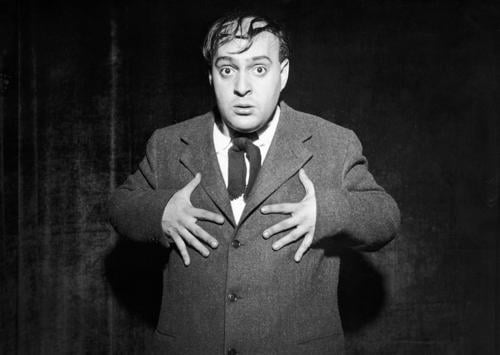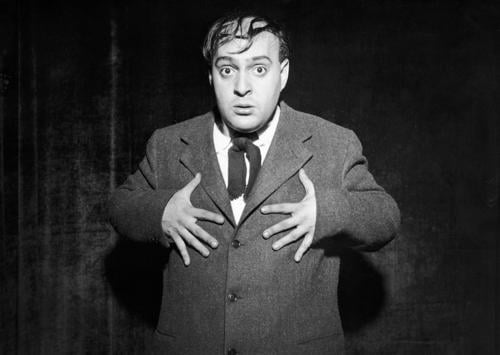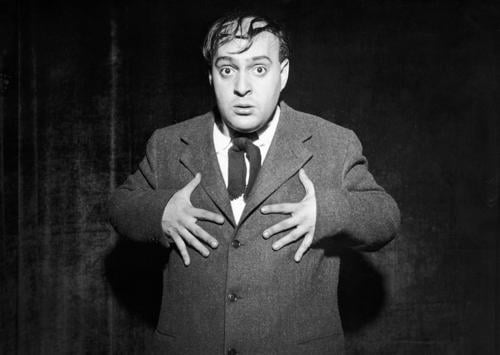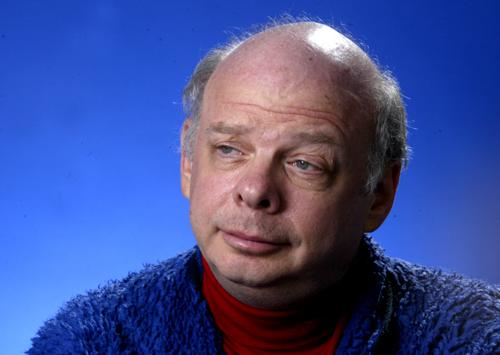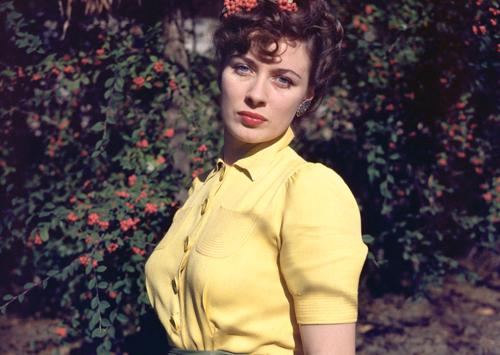Listen to New Voices on Studs Terkel our partnership with 826CHI-here! Read the Story
Showing 1 - 15 of 523 results
-
Zero Mostel discusses the play "Rhinoceros" and acting theory ; part 2
Aug. 14, 1961 Zero Mostel talks about acting theory, French and American theater differences, and the reflection of art in society.
-
Zero Mostel discusses the play "Rhinoceros" and acting theory ; part 1
Aug. 14, 1961 Zero Mostel talks about acting theory, French and American theater differences, and the reflection of art in society.
-
Zero Mostel discusses acting and improvisation
Oct. 1, 1976 Contrary to what some people believe, Zero Mostel says that being an actor is not that easy of a job. Everything one knows, Mostel explains, becomes apart of who you are. The more one knows, the better his/her work will be.
-
Ying Ruocheng discusses the Chinese production of “Death of a Salesman"
Nov. 26, 1984 Ying Ruocheng, actor and director, starring in the Chinese production of Arthur Miller's "Death of a Salesman," discusses his acting career, Chinese culture, and theater adaptations. Includes an interview with Arthur Miller.
-
Wole Soyinka discusses the play "Death and the King's Horseman"
Oct. 11, 1979 Wole Soyinka discusses the play "Death and the King's Horseman." Includes passages from the play and Nigerian funeral music.
-
William Gibson discusses writing plays
1969 Now being a professional playwright, William Gibson talked about being able to write one of his plays in 8 days. A lot of the discussion is about his play, "The Miracle Worker". After reading one of Annie Sullivan's letters, and learning about a battle royale that Sullivan had with Helen Keller, Gibson envisioned what that battle royale would look like. It became a now famous part of the play.
-
William Ball discusses the American Conservatory Theater
Aug. 16, 1966 William Ball discusses the American Conservatory Theater in Pittsburg, PA. They discuss in great detail how different the company is. Specifically that they keep themselves learning and perfecting the classic style. Dick Christiansen theater and film critic joins the conversation.
-
Warren Leming discusses and performs songs from the play "The Eight Hours"
Apr. 8, 1987 Terkel comments and presents songs and stories from "The Eight Hours"
-
Wallace Shawn discusses his play “The Designated Mourner”
Mar. 21, 1997 Studs Terkel and playwright Wallace Shawn discuss Shawn’s play “The Designated Mourner,” and the play’s deeper themes. Both Shawn and Terkel read monologues from the play.
-
Viveca Lindfors discusses her roles and the roles of women in society
Feb. 2, 1974 Viveca Lindfors discusses her roles and the roles of women in society. Includes Viveca Lindfors reciting lines written by Lillian Hellman.
-
Vincent Dowling discusses his career in theater
Mar. 1, 1990 Actor, director, and author Vincent Dowling performs scenes and roles from his repertoire. He discusses his previous plays and touches on what influenced his career in acting and directing.
-
Vic Greco and Fred Willard discuss their original comedy skits
Oct. 4, 1962 While performing some of their original material, comedians Vic Greco and Fred Willard talk about how they come up with their ideas for their shows. Always the entertainers, and while talking over one another, Greco and Willard explain that most of what they do on stage is improvisation.
-
Valentin Pluchek and Stanislaw Pchenikov discuss Russian theater, specifically Moscow ; part 1
Jan. 19, 1962 Studs Terkel interviews Valentin Pluchek and Stanislaw Pchenikov on Russia theater, focusing mainly on the city of Moscow.
-
Uta Hagen discusses her book "Respect for Acting"
Feb. 9, 1982 Being able to use one's own life experiences should be used when playing a part is something Uta Hagen teaches in her book, "Respect for Acting". Hagen also points out the importance of keeping the audience engaged. Should someone on stage do something out of the ordinary, it's an incredible moment, as it's where the audience has placed their attention.


